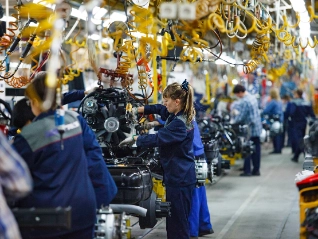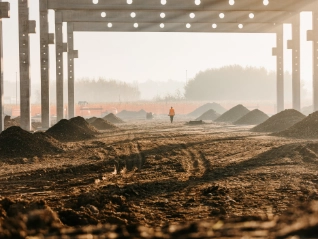
Veranstaltungen

Webinare

Publikationen

Immer gut informiert.

360 Grad.News

Blog

Podcast
Unsere regelmäßigen Events & Messen für Kunden und Interessenten bieten wertvolle Möglichkeiten für Austausch, Inspiration und Vernetzung.
Diese Plattformen nutzen wir, um neue Branchentrends zu verfolgen, unser Know-how einzubringen und wertvolle Partnerschaften zu entwickeln.

Das war unser Stand auf dem 21. Bundeskongress 2024 in Dortmund.

Besuchen Sie uns auf der Structured FINANCE Messe in Stuttgart!
Unsere vergangenen Events haben Kunden und Interessenten zusammengebracht, um Wissen zu teilen, neue Impulse zu erhalten und wertvolle Kontakte zu knüpfen.
Ob inspirierende Vorträge, interaktive Workshops oder Networking-Treffen – jede Veranstaltung bot Raum für Austausch und nachhaltige Verbindungen. Lassen Sie sich von unseren bisherigen Events inspirieren und seien Sie beim nächsten Mal dabei!

Das 36. Finanzsymposium 2025 in Mannheim - Wir sind dabei!

Dieses jahr sind wir erstmalig auf dem AWT vertreten.

Nachhaltigkeit als elementarer Bestandteil des Geschäftsmodells: Chancen und Risiken für den Mittelstand?

Energiewende Deutschland: Quo vadis?

Die erfolgreiche radikale Transformation der INTERSPORT Deutschland eG
Unsere Webinare bieten Kunden und Interessenten wertvolle Einblicke, praxisnahes Wissen und interaktive Austauschmöglichkeiten.
Nutzen Sie diese Plattform, um aktuelle Branchentrends zu verfolgen, Fachwissen zu vertiefen und wertvolle Kontakte zu knüpfen.
Unsere vergangenen Webinare bleiben exklusiv – die wichtigsten Erkenntnisse sowie weiterführende Informationen und Whitepaper finden Sie hier.

Analyse der aktuellen Insolvenzsituation

Wie zukunftssicher ist der Wirtschaftsstandort Deutschland?

20.03.2025. - Nachhaltigkeit als elementarer Bestandteil des Geschäftsmodells: Chancen und Risiken für den Mittelstand?
Amid a fragmented global landscape, the EU and India are pursuing different strategies to build economic resilience and achieve strategic autonomy


Discover how the global economy is navigating trade tensions and uncertainty, with AI investment driving resilience and shaping growth prospects for 2026 and beyond

Industry growth slows as global trade applies the brakes

Can South Africa's GNU party overcome tensions and structural challenges to unlock GDP growth?

US tariffs, geopolitics and lower demand trigger a contraction of global automotive production in 2026

Tari...

Pharmaceuticals businesses throughout the world are reviewing their operational and...
Einsehen 7 aus 407
Haben Sie Fragen?
Sprechen Sie uns an! Wir beraten Sie gerne rund um Ihr B2B Forderungsmanagement.
Hier finden Sie alle relevanten Informationen über Atradius in Form von Pressemitteilungen, Hintergrundinformationen, hochauflösenden Bildern und Grafiken sowie unsere Filme. Wir stehen Ihnen gerne für weitere Fragen zur Verfügung.
Die Stimmung in Deutschlands Unternehmen ist getrübt.


Deutschlands Automobilindustrie droht auch im Jahr 2026 der Verlust Zehntausender Arbeitsplätze.

In einem...

Auto-, Stahl- und Chemiegipfel – die Politik lädt zu Gesprächen, die Wirtschaft hofft...

Fehlende Planbarkeit, Umsatzrückgänge und steigende Kosten setzen die Krise in der Automobilindustrie weiter fort. Besonders die...

Engere Beziehungen könnten den Handel ankurbeln und eine funktionierende Alternative zur blockierten WTO schaffen. Doch ohne die...
Einsehen 7 aus 118
Für Unternehmer und Kreditmanager ist es heutzutage schwieriger denn je, über alle relevanten Zahlungsausfallrisiken den Überblick zu behalten und die richtigen Entscheidungen zu treffen. Wir helfen Ihnen dabei – mit unserem kostenlosen Newsletter "360 Grad.News". Sie finden hier regelmäßig Informationen zu aktuellen Branchen-, Länder- und Insolvenzentwicklungen und erfahren mehr über unsere Produkte und Dienstleistungen.








Einsehen 7 aus 35
Haben Sie Fragen?
Sprechen Sie uns an! Wir beraten Sie gerne rund um Ihr B2B Forderungsmanagement.
Worum geht`s?
Ihr Wissensvorsprung in der Kreditversicherung – kompakt & praxisnah
In unserem Podcast teilen Experten praxisnah ihr Wissen und analysieren aktuelle Entwicklungen, die entscheidend für den Schutz und das Wachstum Ihres Unternehmens sind.
Mit tiefgreifendem Know-how und spannenden Themen liefern wir Ihnen regelmäßig neue Impulse, um Ihr Unternehmen erfolgreich in die Zukunft zu führen.
Jetzt abonnieren und stets informiert bleiben!
Haben Sie Fragen?



































